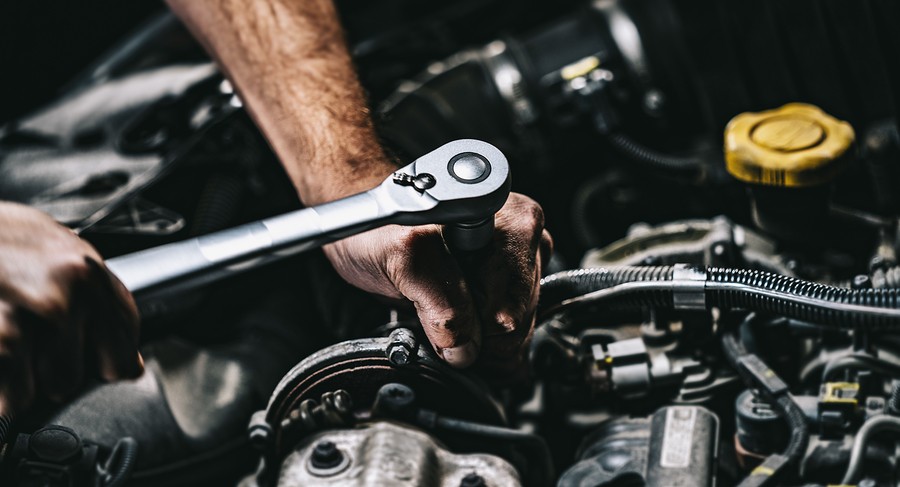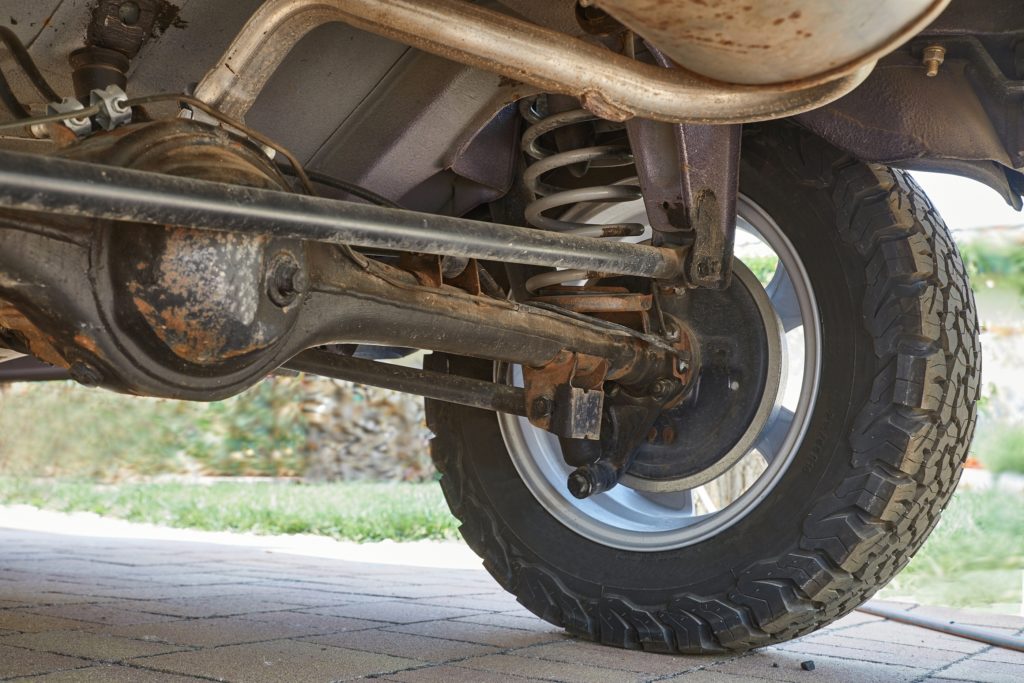The 2019 Dodge Ram 1500 embodies rugged elegance, a harmonious fusion of brawn and beauty. But with age and continual use, even this powerhouse can encounter its own set of issues, particularly in its differential.
Introduction to the Differential
The Essence of a Differential
The differential is a pivotal component, frequently overlooked yet indispensable in ensuring that your truck runs smoothly. It's a gearbox located between the drive wheels. Think of it as a mediator; it balances the power dispatched from the engine to the wheels, allowing them to revolve at different velocities—vital during turns. It's an art of physics and engineering combined, ensuring that despite varied speeds of the tires, the vehicle stays stable and grounded.
Differential's Role in the 2019 Dodge Ram 1500
For heavy-duty trucks like the Dodge Ram 1500, the differential plays a more magnified role. Given its frequent tasks of carrying bulky loads or driving on uneven terrains, a functional differential is crucial. It becomes the unsung hero that provides a perfect balance, ensuring power is evenly distributed. Without it, your Ram might teeter or topple, especially in challenging environments.
The Sounds of a Struggling Differential
Probable Causes for Noise
- Worn Bearings: Continual friction and use mean that the bearings in the differential will inevitably wear out. When they begin to degrade, they often emanate a rumbling or roaring sound. This noise might be faint initially but gradually becomes more pronounced, especially during turns.
- Inadequate Differential Fluid: The differential fluid acts as a lubricant, ensuring smooth operations. However, if the fluid is either deficient in volume or has become contaminated, it could give rise to a high-pitched whining noise. Think of this as your truck's way of saying it's thirsty and needs a fluid change or top-up.
- Gear Issues: The differential contains a series of gears intricately meshed together. If these gears become damaged or misaligned, they might produce a disturbing grinding noise. This sound isn’t just distressing to the ears; it indicates that the differential is in dire need of attention.
Deciphering the Noises in Your Ram 1500
- Noise When Accelerating: Should you notice a distinct noise as you press down on the accelerator, which diminishes when you ease off, pinion bearings could be signaling distress. This sound, often a whine or hum, indicates the early stages of wear.
- Sound During Deceleration: Conversely, if a noise arises when you're decelerating or taking your foot off the accelerator, the pinion bearings once again might be at fault. This auditory cue is a more urgent plea for intervention.
- Persistent Noise: A drone or hum that persists, irrespective of your acceleration or deceleration patterns, is typically indicative of deteriorating differential carrier bearings. Such a constant sound warrants an immediate check.
![]()
The Consequences of Ignoring Differential Noises
Turning a deaf ear to these differential sounds can lead to graver problems:
- Worsened Fuel Efficiency: A malfunctioning differential means the engine has to overcompensate. This overexertion can lead to increased fuel consumption, burning a hole not just in the differential but also in your pocket.
- Compromised Safety: An unchecked, faltering differential is a safety hazard. It could give way at any time, jeopardizing the vehicle's stability, particularly at higher speeds or tricky terrains.
- Heightened Repair Costs: Addressing differential sounds promptly can avert more severe, expensive repairs in the future. A stitch in time, in this case, genuinely saves nine, or perhaps even more.
Differential Care and Noise Prevention
Routine Maintenance
- Frequent Fluid Inspections: Regularly inspecting and replenishing the differential fluid can prevent many potential problems. It’s not just about quantity but quality too. Always choose premium-quality differential fluid. Your Ram deserves nothing less.
- Post-Rigorous Driving Checks: After particularly intense driving sessions, like off-roading or carrying heavy loads, it's prudent to conduct a thorough differential inspection. Such proactive checks can nip burgeoning issues in the bud.
Professional Intervention
- Immediate Action: Don't wait for the noise to become a cacophony. At the slightest hint of an unusual sound, especially from the differential region, seek professional advice.
- Choosing the Right Mechanic: The Dodge Ram 1500's differential is a complex apparatus. Always ensure that your chosen mechanic possesses ample experience with this model. A seasoned hand can detect and rectify issues that a novice might overlook.

Types of Differentials in the Dodge Ram 1500
Open Differential
The most common type found in many vehicles, an open differential, works by allocating power to the wheel with the least resistance. While this aids in maintaining tire longevity, it can sometimes result in less traction, especially in slippery conditions.
Limited-Slip Differential (LSD)
LSD is a step above the open type, designed to bridge the gap between open differentials and lockers. When one wheel loses traction, the LSD transfers more power to the other wheel, ensuring better grip and stability.
Electronic Locking Differential
This differential type allows the driver to manually lock the axles, ensuring both wheels turn at the same rate. Particularly beneficial for off-roading, it provides enhanced traction in challenging terrains.
Understanding the type of differential in your Dodge Ram 1500 is essential to diagnose specific noises and potential issues accurately.

Common Differential Repair Costs for Dodge Ram 1500
Differential Fluid Change
A fluid change is the most basic maintenance task, typically costing between $80 to $150. However, always opt for high-quality lubricants, even if slightly pricier. It's an investment for your vehicle's longevity.
Bearing Replacement
Should the differential bearings be the culprit for the noise, anticipate a cost range of $200 to $400 for their replacement.
Full Differential Overhaul
In worst-case scenarios, where multiple components within the differential need attention, a complete overhaul might be necessary. This repair can range anywhere from $400 to $1,500, depending on the extent of damage and labor charges.
Being aware of these potential costs not only helps budget for repairs but also underscores the importance of timely maintenance to avert pricier overhauls.

Upgrading Your Ram 1500's Differential
Why Consider an Upgrade?
Upgrading isn't merely about fixing an existing problem. It's about elevating your vehicle's performance. With advancements in automotive technology, several superior differential models offer enhanced traction, stability, and fuel efficiency.
Lockers vs. LSD
If you're an off-roading enthusiast, consider switching to a locker from an LSD. Lockers provide unmatched traction in rugged terrains. Alternatively, if your drives are more city-centric, an LSD might offer the perfect blend of performance and smoothness.
Consulting a Specialist
Upgrades are significant investments. Before making a decision, consult a differential specialist. They can offer tailored advice, factoring in your driving patterns, budget, and performance expectations.

In Conclusion
The 2019 Dodge Ram 1500 is a testament to automotive excellence. By staying in tune with its sounds and rhythms, especially from the differential, you can ensure it continues to serve you faithfully for years. Regular maintenance and prompt interventions can keep this beast not just on the road but ahead of the pack.



